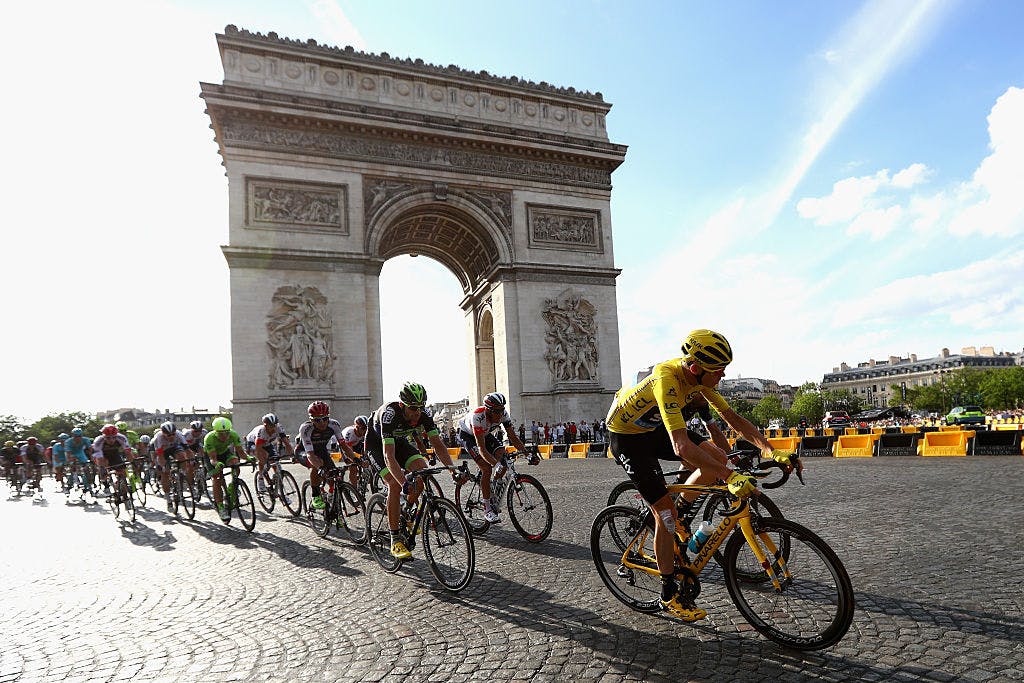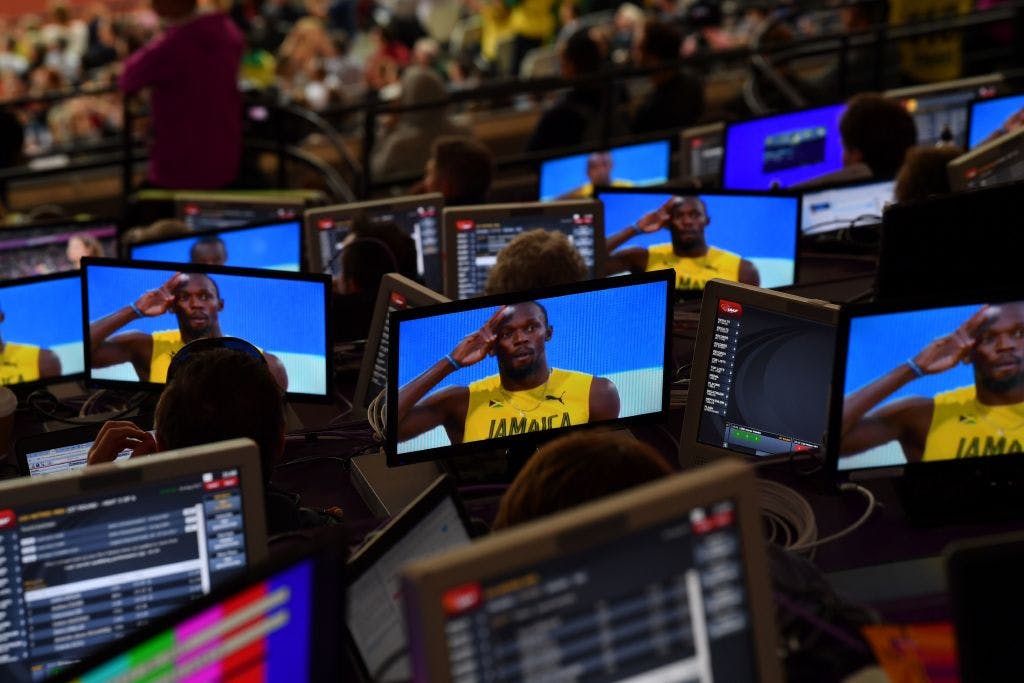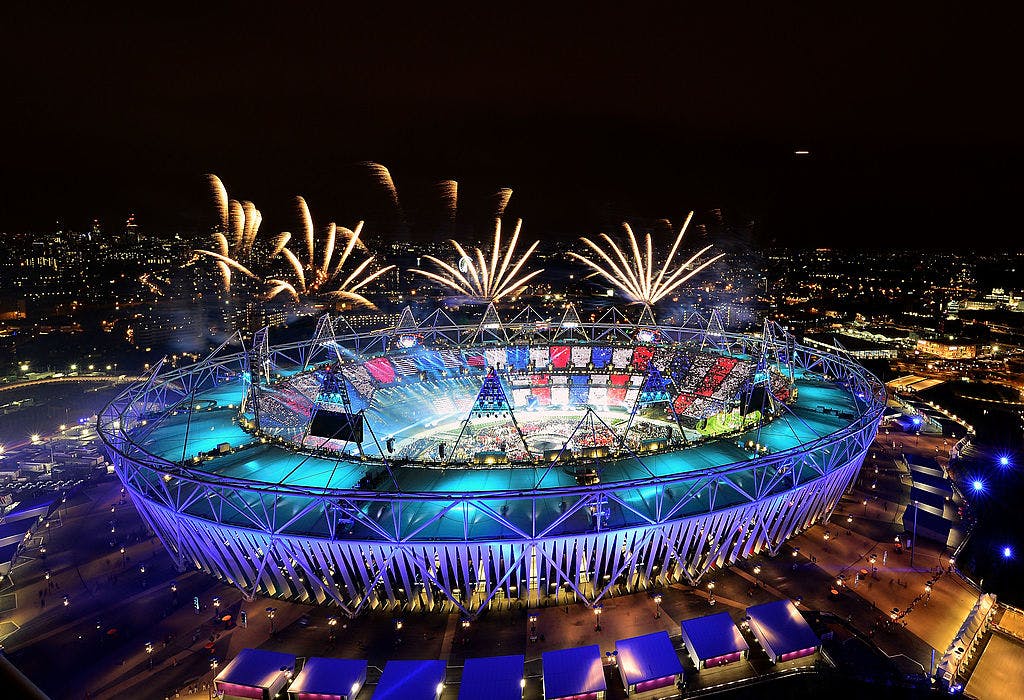Eurovision Sport, the sports arm of the European Broadcasting Union, is carrying out negotiations over the payment of rights to cancelled and postponed sports events on a “case-by-case” basis, according to Stefan Kürten, its outgoing executive director.
Speaking to SportBusiness in a wide-ranging interview ahead of his departure next month, Kürten said that Eurovision Sport was adopting the strategy in its talks with federations whose event schedules have been ravaged by the spread of the Covid-19 pandemic.
In the case of cancellations, Kürten said that the EBU has been assessing the corresponding value and holding the relevant discussions with federations. He continued: “If there are postponements, [then] subject to contract we are talking with the federations because we have no interest to see a federation going dry.
“So we discuss with them whether an adaptation of the payment schedule is possible and this with regard to the internal obligations they have. We are being very co-operative in this respect.”
Kürten is overseeing the Eurovision Sport acquisitions team dealing with the contractual and rights fee payment issues caused by the spate of postponed and/or cancelled events.
Eurovision Sport’s sales team has been holding negotiations to align payment schedules with the likes of Eurosport, ESPN and IMG, who have all entered into EBU partnerships on different sports projects.
Around 90 per cent of Eurovision Sport staff, which also includes the servicing, finance and administration teams, have still been working during the Covid-19 crisis, according to Kürten. Work undertaken by the servicing team includes the provision of tailored archive content to members after discussions with federations, plus the co-ordination of plans following various postponements that leave a congested sports calendar in 2021 and 2022.
Asked whether the value of rights to re-arranged events – perhaps behind closed doors – could be worth less in Eurovision Sport’s eyes, Kürten said that certain criteria, headed by the participation of top athletes, would need to be fulfilled for events to maintain their value.
He observed: “If it’s an event that’s [being held] in a row and you see they are participating just for the sake of participation then it’s a different call than if there’s full participation and, yes, probably conflicting with other sports but there are top athletes [there] and it’s top quality. We are very partnership-driven in this approach.”
Public-service broadcasters, like their free-to-air commercial and pay-television rivals, face the prospect of curtailed rights budgets as the long-term financial impact of Covid-19 takes hold. The BBC, the UK public broadcaster and EBU member, has already warned of a £125m (€143.5m/$155.5m) fall in income this year alone.
Nevertheless, Kürten is confident that the EBU, which also includes commercial broadcasters among its members, can emerge from the crisis in a stronger position than other players in a consolidated market.
He said: “We clearly foresee that our role in a changing environment might even be to see a bigger focus again on first-screen public-service broadcasting. As a more general remark, throughout the crisis people are focusing more on public-service media.
“There will [also] be a hunger and appetite for the first European and World Championships of Olympic sports that come back live on screen.
“We are not dependent on subscriptions. There is a business case that has to be revised differently [for subscription broadcasters], whereas on our side this is not the case.”
Kürten, who will be succeeded at Eurovision Sport by the promoted Glen Killane, argued that being less dependent on “external players” such as agency investors who could move away from sports amid a global economical downturn, would lead to a growth in the role of public-service broadcasting.
“These kind of dependencies from potentially moving goalposts on the stakeholder side is not our problem.”
“The span of what we have lived through and survived is wide”
Asked about the nature of the Eurovision Sport portfolio that Killane will inherit, Kürten stressed that “all relevant properties” had been retained and that security was offered by renewals running until the middle of the 2020s. Contracts with over 30 federations are in place.
He said: “I’m very pleased and proud that we managed throughout these two decades to remain and be a very relevant player in the market. If you look at the latest contracts that we did, there have been very high-volume deals over the last three or four months.
“When I announced that I will leave the organisation, I wanted to secure [these]. It was on my agenda to make sure that my successor and the team gets a perspective of multiple years to come with a safe portfolio.”
Recent deals include: the extension of rights to the Tour de France and Vuelta a España ‘Grand Tour’ cycling races to 2025, the International Biathlon Union renewal to 2025-26 (with a four-year option); securing an option on Austrian ski federation (ÖSV) rights to 2024; rights to Uefa women’s and age-grade national team tournaments to 2022; and an extension with the European Union of Gymnastics (UEG) to 2024.

Kürten joined the EBU from German public broadcaster ZDF in 2001 as director of Eurovision operations and sports rights. However, his ties to the Geneva-based body date back to 1998, when he became chairman of the EBU Sports Committee.
Assessing the various competitors the EBU has jostled with for rights over the years, he surmised: “The span of what we have lived through and survived is quite wide. Starting from the dual system with the private free-to-air broadcasters coming, then the agencies coming up, then telcos coming in and then global players taking over the agencies and/or media houses. And now the global media houses are moving in to the sports sector.
“Due to our vision and ability to adapt and reinvent ourselves, we managed to survive and maintain our very relevant position in the market. We are not very loud in how we communicate. We have seen lots of louder players on the market passing by and going belly-up.”
As evidence of that reinvention, Kürten points to various examples of “creativity and innovation”, including the way in which sports, such as biathlon, are presented, the EBU’s involvement in the inaugural multi-sport European Championships and an investment in the potential of the Fifa Women’s World Cup before it achieved mainstream popularity.
Elsewhere, the EBU has developed a tie-up with Snapchat to allow athletes to share their stories, provided digital solutions to members and, at the 2018 European Championships, offered a broadcast feed for athletes to share to their social media followers.
Defining exclusivity and carve-outs
The major challenge still facing Eurovision Sport will be the development of “creative partnerships” that afford rights to other broadcasters but hold back some exclusivity, according to Kürten.
In one such distribution alliance agreement, the EBU’s sports arm joined ESPN’s media distribution agency to land the IAAF World Athletics Series rights in Europe and sub-Saharan Africa from 2018 to 2023.
Kürten remarked that the biggest challenge is to “define property by property the adequate balance of rights that have to be exclusive and rights that should and have to be shared”.
He added: “We have moved substantially forward in understanding it but these kind of creative partnerships are not the end, they are the beginning. This process of redefining per property – and for some properties it’s working better than others – is a co-operation with the various stakeholders.
“That means the interests of the federations and the own promotion they want to have, the interests of the marketing and commercial partners, the interest of the broadcasters on various platforms and the interest of the athletes. That is the key for any sport in the future to get this thing right.”
Over time, the EBU has started to carve out certain rights and put them on the market through its sales unit.
“We predefine, together with the servicing department, which rights we think will go on a non-exclusive basis in the future”, Kürten said, adding, “that can be highlights clips or streaming solutions” that will, ultimately, accumulate “the biggest number of eyeballs”.

The ones that got away
The loss of Olympic broadcast rights in Europe, which the EBU had held until 2012, represents one of the chief disappointments during Kürten’s near 20-year tenure.
Having first lost its grip on the rights to the Lagardère-owned Sportfive agency in a deal covering the Sochi 2014 and Rio 2016 games, the EBU was then left empty handed as Discovery secured the rights in Europe (excluding Russia) for €1.3bn ($1.4bn) in a four-games agreement. The latter deal, announced at the International Olympic Committee’s headquarters just under five years ago, represented a “missed chance for both sides”, according to Kürten.
While the Olympics ultimately ended up being broadcast by many EBU members through sub-licensing deals struck by Sportfive and then Discovery, the initial loss of the long-held rights prompted suggestions that federations would walk away from the EBU given it was no longer showcasing the Olympics. Ultimately that proved not to be the case.
Kürten said: “We have always lost and won. Normally as a rule we’ve won back what we lost. On the Olympics I still have hope. The EBU remains interested in the rights.
“My personal feeling when we lost it was clearly a huge disappointment because apparently we couldn’t convince the IOC of the criteria that were relevant for us. We thought these criteria were also the decisive criteria for the IOC: the financial contribution; and also our members’ involvement and the public-service broadcast investment in the development of sports during the Olympiad.
“We thought that this investment on the national, European and international level was a very relevant criteria, plus the possibility to develop a joint venture in the future in archive exploitation etc.”
Kürten is sure to be hoping that the acclaim for the free-to-air platform put in place by the EBU for Glasgow and Berlin’s inaugural European Championships will have made the IOC sit up and take notice.
On that project, he noted: “We had the feeling that Europe was disappearing a bit from the events and sports map even though it’s still the key financing driver for all these Olympic sports.
“We wanted to emphasis the cradle or origin of these sports by maintaining a strong connection to the European society. That is why we wanted to create this kind of milestone in the middle between the Summer Olympic Games.
“We didn’t want to create something new or additional but look at what you have and put it together. That concept of aggregation and that one plus one equals three is something we worked on for years and we were very happy with 2018.”
Eurovision Sport is signed up to broadcast the second edition of the games in Munich in 2022.
Quizzed on rights that the EBU missed out on during his time, Kürten cites handball in particular as a sport he would have liked to win rights back to. In 2017, the EBU was interested in the European Handball Federation’s media rights to club and national team competitions over 10 years, but was ultimately not among the bidders in a process won by the Infront agency and DAZN Group.
He said: “We would love to make sports understand that working with us means leading them into a new world. I would have loved to get handball and more team sports in the non-football world. They play a very relevant role in the European society. That could be handball or ice hockey [for instance].”

Remaining in the industry
With regards to his next destination, Kürten insisted that nothing has yet been decided and that he will assess the opportunities in the coming months.
He concluded: “I didn’t decide to go because I have something else up my sleeve.
“I thought it’s now the time because the EBU is nicely positioned. We have done the right things over two decades and I hope my successor will sit in twenty years’ time and will say the same thing.
“I decided to leave now and at this age because it’s the possibility to open a new chapter. I wouldn’t have done it in a couple of years. It’s now the moment to get it done. I will remain in the industry. That’s my interest.”